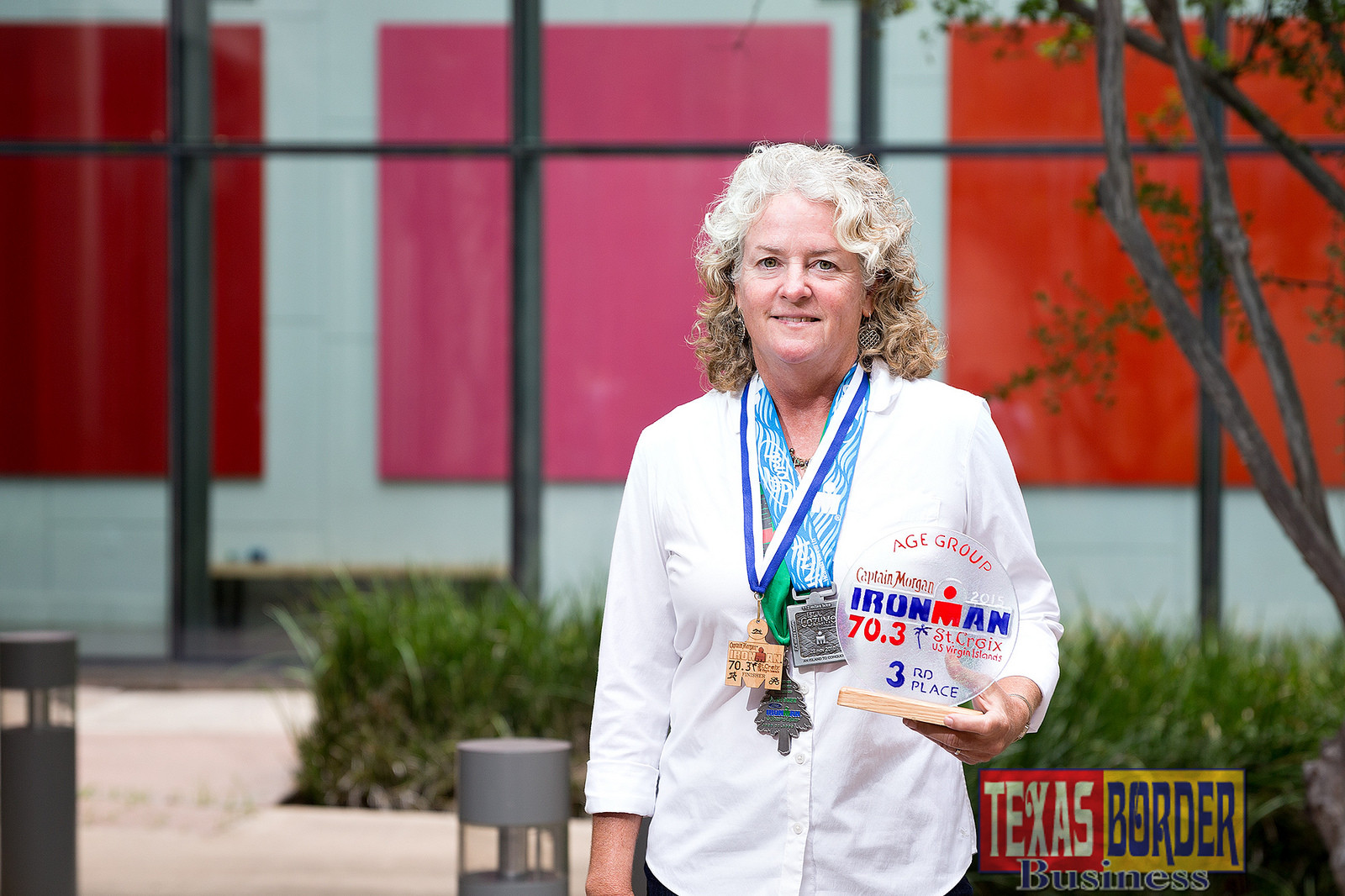
Texas Border Business
By Vicky Brito
RIO GRANDE VALLEY, TEXAS –SEPT. 29, 2016 – – It takes five months of preparation, 300 hours of training, and all the willpower one can muster to become an Ironman.
Or, in this case, an Ironwoman.
Dr. Karen Watt, a professor in the UTRGV College of Education and P-16 Integration’s Department of Organization and School Leadership, will compete in her third Ironman competition, Nov. 5 in Panama City, Florida.
Watt, 53, is no stranger to the competitive life.
“I’ve done two full Ironman races, but I have done 12 half Ironman races and a bunch of other different distance triathlons,” Watt said.
A full 15-hour Ironman race consists of a 2.4 mile swim and a 112-mile bike ride, and concludes with a 26.2 mile run.
Watt participated in her first Ironman competition in 2009 in Coeur d’Alene, Idaho, and her second the following year in Cozumel, Mexico. After her second, she decided to retire from the Ironman races altogether. But she changed her mind.
“It takes a toll on you and it is a lot of time. As you get older, everything gets a little more painful,” she said. “But some friends of mine talked me into a third one, so I am now training.”
Watt trains about 15 hours each week, focusing the bulk of her energy on cycling, as it is the most extensive portion of the race.
“The cycling is really the core. If you don’t have the bike down, you might have a bad race,” she said. “So, it is best to be prepared on the cycling more than any other part of the race.”
The bulk of her training is done on the weekends. She usually will dedicate one day to a five- or six-hour bike ride.
A typical day consists of any combination of the triathlon sports: running, swimming and cycling.
Watt usually trains alone but admits that finding a group of like-minded individuals to train with her breaks the monotony of solo training and also keeps her motivated. The group, informally known as The Gator Chasers, train in the Laguna Vista area, where Watt resides.
“There are very few triathletes out here, but somehow we found each other and we have a really neat core group of people who train together and live fairly close together,” she said.
BREAKING BARRIERS
Watt said that when she first started participating in triathlons, most competitors were men, but she has noticed a change in the past decade.
“Now, you go to a running event and you see more women than men,” she said. “In a triathlon, you still see more men than women, but there are so many more, especially at a younger age, getting involved in sports.”
Watt has always been an athlete. She attended St. Joseph College in Rensselaer, Indiana, on a track and cross country scholarship in the 1980s.
“At the end of my track and cross country career, I started getting interested in cycling, which led to the beginning of my triathlon career in 1984,” Watt said of her first triathlon. “Back then, there were very few regulations, and very few women involved in the sport, and now it’s really just taken off. It is nice to see that interest by men and women of all ages from everywhere.”
Watt said running a triathlon is truly a test of survival, and maintains that balance is key to surviving her training.
“You’ve got your swimming, biking and running,” she said. “But you also have family, work and everything else. So, maintain a balance and enjoy it. A lot of times you are going to have to listen to your body, because if you’re overextending, you can get sick or injured. I try to maintain, and I know what my body can take and what my body can’t take. You get to learn what your body can withstand.















